Plot summary
While attending a conference in Moscow, the historian Christopher "Fluke" Kelso is met by an old man named Papu Rapava, who claims to have been present at the death of Joseph Stalin. Immediately after Stalin's death, Lavrenty Beria supposedly took measures to secure a black notebook, which is believed to be Stalin's secret diary. Rapava spent years in Kolyma after the authorities tried to extract the book's location from him, but he has never revealed it though he knows that shadowy agents are still watching him in case he goes near the mysterious thing.
Kelso eventually locates the notebook, which Rapava had left to his daughter just before he was recaptured and tortured to death. It proves to be the memoirs of a young girl chosen by Stalin to be the mother of his secret heir. Following the trail to the remote northern city of Arkhangelsk, Kelso comes face to face with Stalin's son.
Raised in a log cabin filled with Stalin's personal effects, writings and recorded speeches, the son is a physical and ideological copy of his father. It is revealed that he had murdered the husband-and-wife KGB agents who had raised him from infancy when he decided they were untrustworthy. Young Stalin has been told that he would be sent for when it was time for him to assume control of his country, and he believes that Kelso is the promised messenger.
Stalin overcomes a special forces unit sent to eliminate him, which alarms Kelso by his ruthless and dispassionate use of violence, and he boards a train headed for Moscow. At each station, ever-larger crowds gather to witness the apparent resurrection of the famous dictator, and it appears that he might be able simply to stride through the doors of the Kremlin and assume command.
As he steps off the train in Moscow, Rapava's daughter, who has made her way into the crowd at the railway station, takes out her father's pistol. The novel ends there.

Lavrentiy Pavlovich Beria was a Georgian Bolshevik and Soviet politician, Marshal of the Soviet Union and state security administrator, chief of the Soviet security, and chief of the People's Commissariat for Internal Affairs (NKVD) under Joseph Stalin during the Second World War, and promoted to deputy premier under Stalin in 1941. He officially joined the Politburo in 1946.

Mikhail Afanasyevich Bulgakov was a Russian, later Soviet writer, medical doctor, and playwright active in the first half of the 20th century. He is best known for his novel The Master and Margarita, published posthumously, which has been called one of the masterpieces of the 20th century.

A look-alike, double, or doppelgänger is a person who bears a strong physical resemblance to another person, excluding cases like twins and other instances of family resemblance.

The Cambridge Five was a ring of spies in the United Kingdom that passed information to the Soviet Union during the Second World War and the Cold War and was active from the 1930s until at least the early 1950s. None of the known members were ever prosecuted for spying. The number and membership of the ring emerged slowly, from the 1950s onwards.
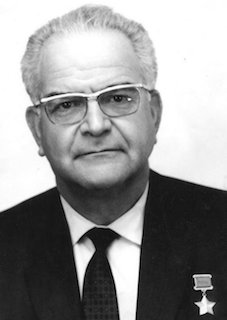
Ramón Mercader, was a Spanish Communist and NKVD secret agent who assassinated the Bolshevik revolutionary Leon Trotsky in Mexico City, in August 1940. For murdering the exiled Russian Communist with an ice axe, Mercader was imprisoned for 19 years and 8 months in Mexico.

Robert Dennis Harris is a British novelist and former journalist. Although he began his career in journalism and non-fiction, his fame rests upon his works of historical fiction. Beginning with the best-seller Fatherland, Harris focused on events surrounding the Second World War, followed by works set in ancient Rome. His most recent works centre on contemporary history. Harris was educated at Selwyn College, Cambridge, where he was president of the Cambridge Union and editor of the student newspaper Varsity.
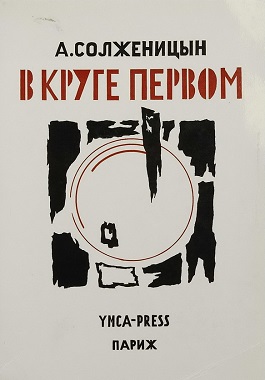
In the First Circle is a novel by Russian writer Aleksandr Solzhenitsyn, released in 1968. A more complete version of the book was published in English in 2009.
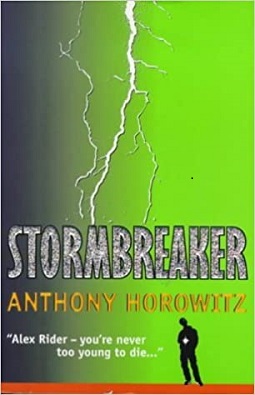
Alex Rider is a series of spy novels written by British author Anthony Horowitz. The novels revolve around a teenage spy named Alex Rider and is primarily aimed towards young adults. The series currently comprises thirteen novels, as well as six graphic novels, seven short stories, a supplementary book, and a TV series. A fourteenth novel will be published in 2023.

Alexander Mikhailovich Orlov, was a colonel in the Soviet secret police and NKVD Rezident in the Second Spanish Republic. In 1938, Orlov refused to return to the Soviet Union due to fears of execution, and instead fled with his family to the United States. He is mostly known for secretly transporting the entire Spanish gold reserves to the USSR in exchange for military aid for Spanish Republic and for his book, The Secret History of Stalin's Crimes.
Boxer is a character from George Orwell's 1945 novel Animal Farm. He is shown as the farm's dedicated and loyal laborer. Boxer serves as an allegory for the Russian working-class who helped to oust Tsar Nicholas and establish the Soviet Union, but were eventually betrayed by the government under Joseph Stalin.
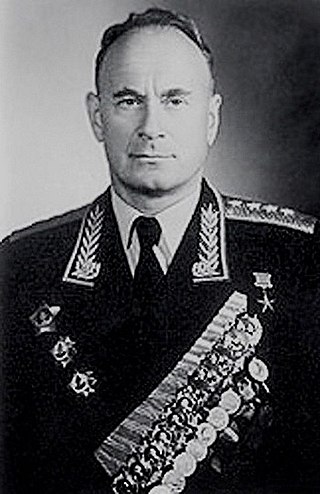
Ivan Alexandrovich Serov was a Russian Soviet intelligence officer who served as the head of the KGB between March 1954 and December 1958, as well as head of the GRU between 1958 and 1963. He was Deputy Commissar of the NKVD under Lavrentiy Beria, and played a major role in the political intrigues after Joseph Stalin's death. Serov helped establish a variety of secret police forces in Central and Eastern Europe after the creation of the Iron Curtain, and played an important role in crushing the Hungarian Revolution of 1956.

Toby Edward Heslewood Jones is an English actor. Jones is known for his extensive character actor roles on stage and screen. From 1989 to 1991 he trained at L'École Internationale de Théâtre Jacques Lecoq. He made his stage debut in 2001 in the comedy play The Play What I Wrote, which played in the West End and on Broadway, earning him a Laurence Olivier Award for Best Actor in a Supporting Role. In 2020, he was nominated for his second Olivier Award, for Best Actor for his performance in a revival of Anton Chekov's Uncle Vanya.

Nikolai Robertovich Erdman was a Soviet dramatist and screenwriter primarily remembered for his work with Vsevolod Meyerhold in the 1920s. His plays, notably The Suicide (1928), form a link in Russian literary history between the satirical drama of Nikolai Gogol and the post-World War II Theatre of the Absurd.
Karla is a recurring character in the works of John le Carré. A Soviet Intelligence officer, he is the head of the Thirteenth Directorate of Moscow Centre, le Carré's fictional version of the KGB, and the nemesis of le Carré's frequent protagonist George Smiley. Karla is nominally an unseen character who operates either through functionaries, hitmen, or by turning his enemies into double agents. Although other characters recount their past meetings with him, he only appears once during the events of the books. His real name is never revealed; instead, he takes his code name from that of the first spy network that he recruited.

The 39 Steps is a 2008 British television adventure thriller feature-length adaptation of the 1915 John Buchan novel The Thirty-Nine Steps produced by the BBC. It was written by Lizzie Mickery, directed by James Hawes, and filmed on location in Scotland, starring Rupert Penry-Jones, Lydia Leonard, David Haig, Eddie Marsan, and Patrick Malahide. Following three screen versions of the novel and the 1952 and 1977 television adaptations of The Three Hostages, Penry-Jones became the sixth actor to portray Hannay on screen. This adaptation is set on the eve of the First World War and sees mining engineer Richard Hannay caught up in an espionage conspiracy following the death of a British spy in his flat.

Ignace Reiss – also known as "Ignace Poretsky," "Ignatz Reiss," "Ludwig," "Ludwik", "Hans Eberhardt," "Steff Brandt," Nathan Poreckij, and "Walter Scott " – was one of the "Great Illegals" or Soviet spies who worked in third party countries where they were not nationals in the late 1920s and 1930s. He was known as a nevozvrashchenec ("unreturnable").

Boris Nikolayevich Livanov was a Soviet and Russian actor and theatre director. People's Artist of the USSR (1948). He was a member of the Moscow Art Theatre from 1924 through 1972.
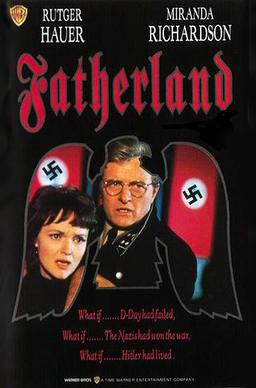
Fatherland is a 1994 American historical drama television film directed by Christopher Menaul and written by Stanley Weiser and Ron Hutchinson, based on the 1992 novel of the same title by Robert Harris. The film stars Rutger Hauer and Miranda Richardson, and aired on HBO on November 26, 1994.
Archangel is a television adaptation of the 1998 novel of the same name by Robert Harris. Made by the BBC in 2005, it was filmed in the city of Riga.

The Secret Agent is a three-part British espionage television drama serial based on the 1907 novel The Secret Agent by Joseph Conrad. The show stars Toby Jones, Vicky McClure, Stephen Graham, David Dawson and Ian Hart. The three-part series began airing on BBC One on 17 July 2016. It is the fourth BBC adaptation of the novel, others having previously been made in 1967, 1972 and 1992.
















